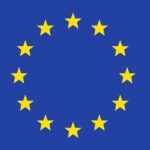
In January 2025, Robinhood Markets, Inc., a well-known and prominent online brokerage firm, agreed to pay a $45 million settlement to the U.S. Securities and Exchange Commission (SEC) to resolve allegations of multiple securities law violations. This settlement highlights the regulatory challenges faced by rapidly evolving fintech companies in maintaining compliance with established financial regulations.
The Background of the Settlement
The SEC’s investigation revealed that Robinhood’s brokerage units, Robinhood Securities LLC and Robinhood Financial LLC, breached more than ten individual securities law provisions. These violations circumscribed a range of compliance failures, including insufficient record-keeping, delayed reporting of suspicious activities, and inadequate measures to safeguard customer data.
The Main Violations Identified
Record-Keeping Deficiencies
Between 2020 and 2021, Robinhood failed to maintain and keep electronic communications’ record safely as required by federal securities laws. This glitch included not retaining copies of operational databases and certain customer communications, hindering regulatory oversight.
Insufficient and Tampered Trade Reporting
Over a five-year period, Robinhood Securities submitted at least 11,849 Electronic Blue Sheets (EBS) to the SEC containing inaccuracies or erased data. These errors affected the reporting of approximately 392 million transactions, compromising the integrity of market surveillance efforts.
Delayed Suspicious Activity Reports (SARs)
From January 2020 to March 2022, Robinhood did not promptly file SARs, as mandated by regulations. Timely SARs are mandatory for detecting and preventing fraudulent activities within the financial system.
Cybersecurity and Identity Theft Failures
The SEC found that between April 2019 and July 2022, Robinhood lacked appropriate theft prevention measures. On top of that, in 2021, the firm failed to address a cybersecurity vulnerability, leading to unauthorized access to information related to millions of customers.
Non-Compliance with Short Sale Regulations
Between May 2019 and December 2023, Robinhood Securities did not adhere to Regulation SHO, which governs short-selling practices. This non-compliance was related to the firm’s stock lending and fractional share trading programs.
Robinhood’s Reaction, Response and Remedial Actions
In response to the SEC’s findings, Robinhood neither admitted nor denied the allegations but agreed to the $45 million penalty. The firm accentuated that many of the cited issues were historical and had already been addressed.
Robinhood has committed to enhancing its compliance infrastructure, including improving record-keeping practices, strengthening cybersecurity measures, and ensuring timely reporting of suspicious activities. These steps aim to prevent future violations and adhere the firm’s operations with regulatory expectations.
Historical Context of Regulatory Challenges
This settlement is not Robinhood’s first encounter with regulatory scrutiny. In December 2020, the company agreed to pay a $65 million civil penalty to settle SEC charges that it misled customers about its revenue sources and failed to provide the best execution of trades. The SEC alleged that Robinhood did not fully reveal its practice of receiving payments from trading firms in exchange for routing customer orders to them, a process known as “payment for order flow.”
Additionally, in 2021, Robinhood faced a significant data gap that exposed the personal information of millions of customers. The breach involved an unauthorized third party who socially engineered a customer support employee by phone and obtained access to certain customer support systems. This incident also highlighted the firm’s cybersecurity vulnerabilities and the need for stringent data protection measures.
Industry-Wide Regulatory Environment
Robinhood’s regulatory challenges are part of a futuristic trend of increased scrutiny on financial firms’ compliance practices. In recent years, the SEC has increased its enforcement actions, particularly concerning record-keeping and the use of unauthorized communication channels by employees. For instance, in 2024, the SEC fined multiple financial institutions a total of nearly $400 million for failing to monitor and retain employee communications on platforms like WhatsApp.
These enforcement actions highlight the SEC’s commitment to ensuring that financial firms adhere to regulations designed to protect investors and maintain market integrity.
Implications for Robinhood and the Fintech Industry
The $45 million settlement serves as a critical reminder for Robinhood and other fintech companies about the importance of stringent compliance frameworks. As fintech firms continue to serve as speed-breakers for traditional financial services, they must balance innovation with adherence to regulatory standards.
For Robinhood, the settlement may have financial and reputational implications. While the firm has experienced rapid growth, fascinating millions of users with its commission-free trading model, repeated regulatory violations could erode customer trust and invite further scrutiny from regulators.
To mitigate these risks, Robinhood will need to demonstrate a sustained commitment to compliance, including investing in compliance personnel, implementing comprehensive training programs for employees, and continuously monitoring and updating its systems to prevent future violations.
Robinhood’s $45 million settlement with the SEC underscores the challenges fintech companies face in navigating and using complex regulatory landscapes. As the firm moves forward, it must prioritize compliance and risk management to maintain its place in the competitive financial services industry. This case also serves as a lesson for the fintech sector on the crucial importance of integrating strict compliance practices into innovative business models.



